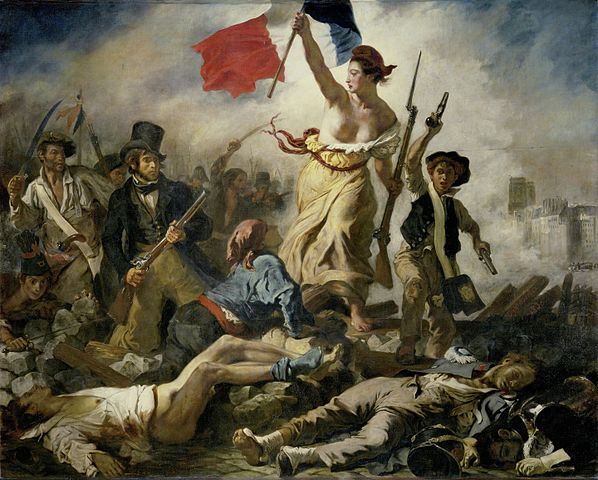6 January 2020 | ANALYSIS
We at Wolves note the words of BBC Political Editor Laura Kuenssberg on the BBC’s Brexitcast shortly before Christmas, in which she – as The Express put it – made “a rare swipe” at the pro-Remain forces that had been trying to overturn the Brexit vote for the past three years or so.
Kuenssberg suggested that historians might well look back on this period with bewilderment, given that a public vote had been cast and the political establishment had then spent the next few years attempting to undo the result of it. We agree with her in broad terms, although our take on how exactly said historians might look back on this period is slightly different.
We should remember that times of great change throughout history, whether or not in political terms, are almost always preceded by great upheaval. The result of the 2019 General Election, with a majority of 80 seats for a party led by no less controversial a figure in some quarters as Boris Johnson, is not all that surprising given the parliamentary shenanigans that preceded it.
What it does emphasise is two principles that are oft-repeated throughout history. Firstly, that things often have to get a lot worse before they get a lot better. Secondly, that great change is always hard-fought and hard-won, and will be resisted by vested interests at all costs. One only has to consider the long, slow and – at times – very bitter journey towards universal suffrage in this country to see this played out in times gone by.
On the world stage also, one might note that great institutions such as the UN and NATO only came into being in the aftermath of WWII. The tragedy of that conflict brought humanity to the brink, but it was only the experience of being there that led us to establish so many of the modern principles of international law that the world’s nations now (mostly) abide by.
A less recent example from abroad might be the French Revolution in the late 18th century, which as it happens also gave us the fundamental political definitions of Left and Right. This is by no means to suggest that the ends could ever justify the means in any of these cases, and nor do we seek to draw any direct comparisons – but what they do all show is that great change generally requires great sacrifice.
And there is certainly much that has been sacrificed in terms of the modern electorate’s trust in politicians, and even in matters so fundamental as our constitution, following the reprehensible behaviour of the 2017 Parliament and much of the wider political establishment. It was necessary for their blatant disrespect and contempt for ordinary voters to be exposed to the harsh light of day, and repeatedly so, before that was ever going to change. In terms of the raw principle there, this is something that we tend to see throughout history.
But what we also see is that humanity rebuilds. We come back together once the conflict is over, and set out in our different direction with renewed vigour. Now, as so often before, it has been the preceding conflict that gave us the energy and determination to do so. Put bluntly, and when viewed admittedly with a good dose of hindsight, it does not seem likely that Brexit could ever really have gone any differently, given the nature and scale of the change that it involves – and demands!
Theresa May was never going to have negotiated a very straightforward, mutually beneficial Withdrawal Agreement that sailed through the Commons and resulted in Britain’s rapid and prosperous departure from the EU. And the wider political establishment was never going to take its kicking from the voters lying down.
In conclusion, then: if this is indeed, as some have said, to be the Roaring Twenties, then in fact it will only ever have been made possible because of what happened at the end of the Warring Tens. That, in our view, is how historians are more likely to look back on this period.


























[…] Originally published here […]
Not too sure that Brexit is going to be a world shattering event, as it only affects us & the EU. What is going to be World shattering is the numerous trade deals we complete (especially with the US) & our/their subsequent prosperity.
Of greater import at the moment is the response to the Corona-virus. The left & the MSM have led us down a path of authoritarianism that surely must never have been seen since the Bronze age. Historians are going to fine comb the decisions & use the benefit of hindsight to rip this outrageous response to shreds.